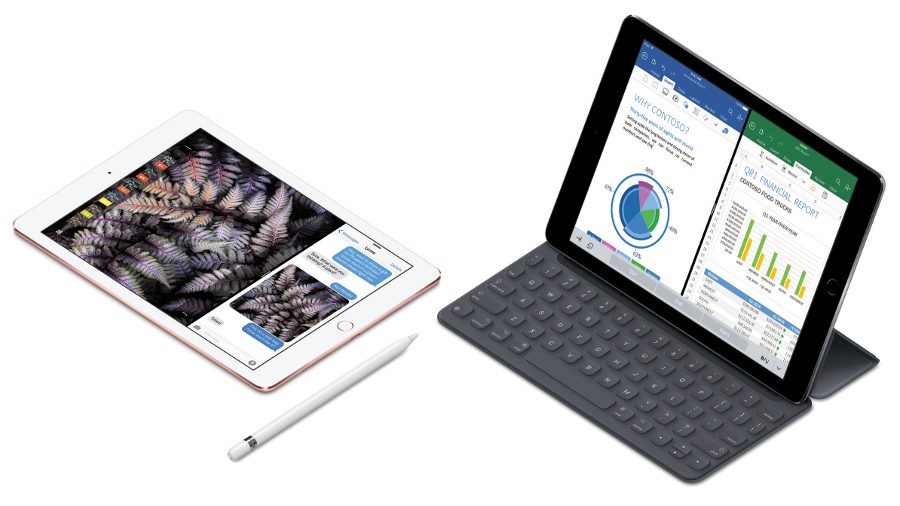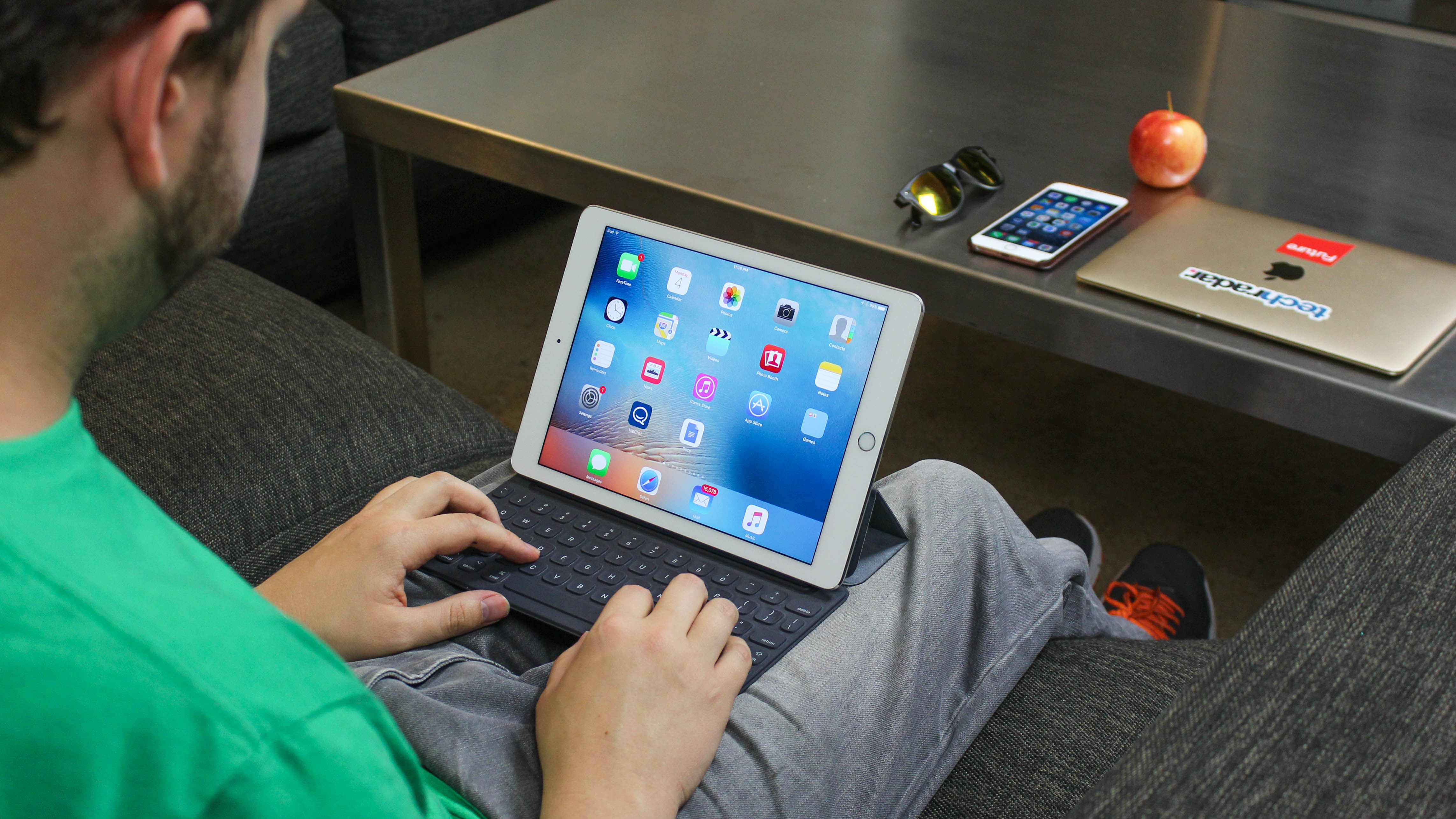Can you run your business with a tablet like the iPad Pro?
Could SMBs wave goodbye to laptops in favour of Apple's new tablet?

With the arrival of the 9.7-inch iPad Pro, Apple has launched an assault on the business users who may have looked at its larger cousin, but felt the cost was too high to adopt this device across their enterprises.
When Apple announced the latest iPad Pro earlier this year, CEO Tim Cook stated that there are over 600 million Windows PCs in use that are more than five years' old. Could your enterprise replace its aging desktops with the new iPad Pro?
The original iPad Pro may have been bigger, but many felt that this didn't necessarily mean better. For the creative industry the larger screen real-estate was a clear bonus, and coupled with the Apple Pencil, offered a new platform for anyone in the creative sector to express themselves. But the smaller 9.7-inch iPad Air was a better fit as a business machine.
Now that Apple has released its new iPad Pro with all the features of its larger cousin, plus some new ones of its own – such as True Tone display technology, and the 12MP camera that can shoot 4K video, plus a wide array of business apps and more on-board memory – suddenly the business community that had perhaps been using the Surface Pro could now pledge their allegiance to Apple without making any compromises on features or power.
- Read techradar's full review of the new iPad Pro here
The real question is: does the new iPad Pro offer a real alternative to machines that have a full OS such as the Surface Pro or MacBook Pro?
Says Oliver Furniss, VP/GM Product at cloud accountancy software company Xero: "It depends on the kind of work you do and your appetite for change. For example, if you're a salesperson on the go, an iPad Pro might be the perfect thing. For a modern small business with everything in the cloud and accessible via apps and the web, it's compelling. The portability, battery life, instant-on and 4G data of the new iPad Pro are ideal."

Business machine?
Whether larger enterprises will adopt tablet PCs on a wholesale basis is yet to be seen. However, in the small business community there may be more movement, as these companies tend to be more nimble and able to adopt new technologies at a faster rate. However, Forrester has found that office workers in general are three times more likely to use laptops and desktop PCs than their tablets.
Sign up to the TechRadar Pro newsletter to get all the top news, opinion, features and guidance your business needs to succeed!
For businesses the headline grabbing consumer-led aspects of the iPad range are not their focus. Productivity and the ability to connect to networks on and off-site, as workers increasingly become decentralised, is important.
Moving wholesale from a desktop/laptop environment to one that is dominated by tablets does seem to be the goal of many smaller businesses. Whether they choose iPads or make their move towards hybrid devices typified by the Surface range, small business owners in particular can see the benefits, and need to test these devices in real-world situations to identify their limitations.
A spokesperson for Dell also noted: "There is a false perception out there that Apple devices based on Mac OS or iOS are more secure. That's simply not true.
"According to a recent whitepaper published by Symantec (Apple Threat Landscape, February 2016), the number of new Mac OS threats is increasing year-over-year, and the number of Macs hit by malware infections have increased significantly – in the first nine months of 2015, the number of unique OS X computers infected with malware was seven times higher than all of 2014."
With Si Conroy, CEO and founder, Scarlet Monday and ConstantMentor.com, commenting: "I can't see the pressure points on SMEs to adopt technologies like iPad Pro without clear business reasons to do so. Performance for price is now probably better aligned to similar laptops. Apple's iPads have always had the advantages of fast start and application switch etc. I think it's a mind-set thing. They are not seen as business tools."

The simple connectivity of Apple's devices has always been a major selling point. For small businesses in particular, the adoption of Wi-Fi across their organisations has bought a level of flexible working that has been unprecedented.
Focusing on this aspect of using tablets in business, Melvit Cardozo, technical support engineer at TP-LINK UK says: "For organisations over 40 seats, the best approach is a series of access points with cluster technology, this effectively creates load balancing between them, managed by a software controller. This is the most cost-effective way for larger SMEs to manage the demands on Wi-Fi created by the proliferation of tablets, or other devices."